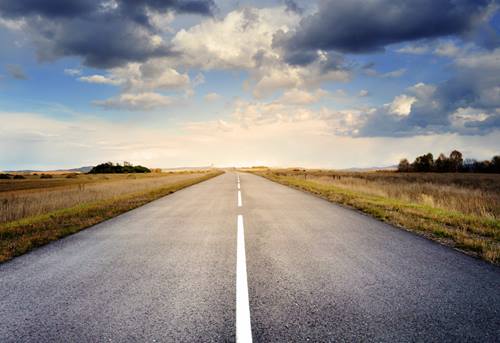Day, S., What lies ahead. Geoscientist 30 (8), 5, 2020
https://doi.org/doi: 10.1144/geosci2020-102, Download the pdf here
 The Geological Society’s motto, coined more than 200 years ago, is ‘whatever is under the Earth.’ I’ve long thought it could be due an update. Poetic though it is, most would agree that the remit of geologists lies far beyond what lies beneath our feet - as July’s launch of NASA’s Perseverance rover, on its way to take soil and rock samples on Mars, attests.
The Geological Society’s motto, coined more than 200 years ago, is ‘whatever is under the Earth.’ I’ve long thought it could be due an update. Poetic though it is, most would agree that the remit of geologists lies far beyond what lies beneath our feet - as July’s launch of NASA’s Perseverance rover, on its way to take soil and rock samples on Mars, attests.
In recent months, the geological community has been turning its mind more and more to what lies ahead. Student numbers, as this month’s Soapbox by geologists at the University of Hull reminds us, are falling, and our science continues to struggle with a startling lack of diversity. In June, the Society co-hosted what might be referred to as a crisis summit – The Future of Geoscience brought together over a thousand participants online to discuss the problems facing the geosciences and how we might respond. In a report from that meeting in this month’s issue, Florence Bullough sums up some of the conversations which took place and asks: is it time to rebrand geoscientists as ‘key workers for the planet’?
Our main feature this month outlines one of the forms that work will take – the critical task of dealing with the nation’s radioactive waste. Deep geological disposal is a fascinating example of the way in which geology intersects with engineering, technology and, not least, science communication – this month, Jonathan Turner of Radioactive Waste Management brings us the latest on the project. Meanwhile, the Society’s Petroleum Group reports on a new direction as it becomes the Energy Group, focusing on all forms of energy production, including renewables.
All sorts of ideas and projects have been proposed as a way to tackle declining student numbers, but it seems generally agreed that part of the problem is one of perception – geoscientists have long been associated with industries which are now viewed as contributors to the planet’s woes. Too often we are viewed as part of the problem, rather than the solution, and we must find a way to communicate the latter more effectively.
Those industries, of course, we remain critical as we work towards net-zero, but what matters is communicating the huge range of opportunities that are out there, for those who want to take a different path. Some readers may recall comments made in 2013 by then Secretary of State for Work and Pensions Iain Duncan Smith, who criticized a geology graduate who had refused an unpaid work placement at Poundland. ‘Smart people’ he told the Andrew Marr show, should ask themselves on their next shopping trip ‘who is more important, the geologist, or the person who stacked the shelves?’
Our response – an opportunity not to be missed – was headlined ‘We’re not above shelf stacking, say geologists’, followed by an explanation of the many different ways geologists have contributed to the food supply chain. ‘Without geologists’ said then Secretary of Foreign & External Affairs Alan Lord, ‘there would be no way to supply supermarkets with produce, no transport for customers or staff – no shelves, in fact.’
I’m not suggesting ‘We’re not above shelf stacking’ as a new Society strapline (although it does have quite a ring to it.) But perhaps, particularly given the year we’ve all had, ‘Key workers for the planet’ might not be a bad place to start.
Sarah Day FGS, Editor
[email protected]
@geowriter